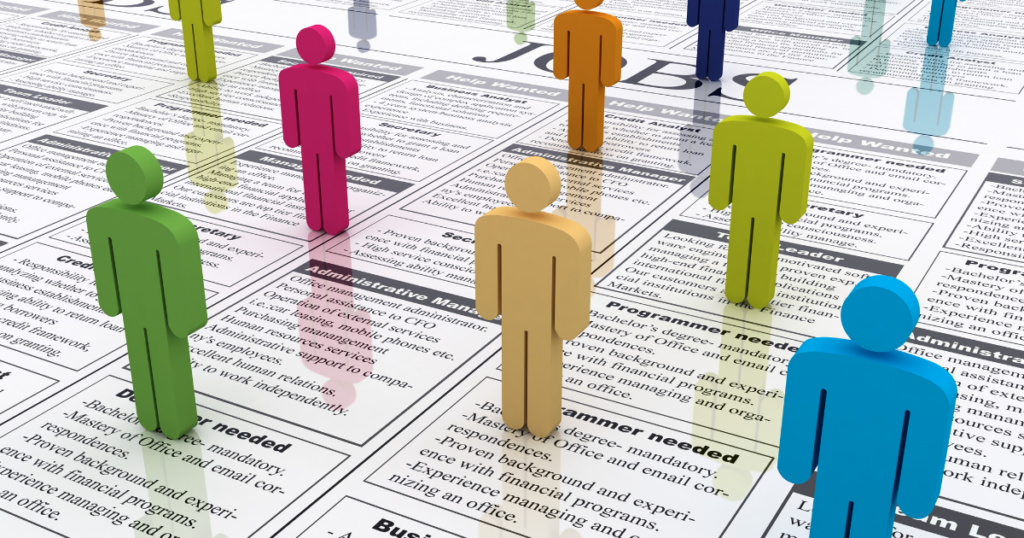
The job market constantly changes, and keeping up with the latest trends and predictions can be difficult. On one hand, you have job market reports that paint a positive picture of the current job market and predict a bright future for job seekers. On the other hand, you have layoff reports highlighting companies’ struggles and the potential for job loss. So, which one should you believe?
I recently polled my LinkedIn followers about their perception of the job market realities vs what was being shown in reports. An overwhelming 89% of respondents agreed that there is a disconnect between whats reported and the realities of the market.

In this article, we’ll explore the realities of job market reports versus layoff reports and how they can impact your career.
Understanding Job Market Reports
Job market reports are typically released by government agencies, research firms, and other organizations to provide an overview of the current job market. These reports often include data on employment rates, job growth, and industry trends. They can be a valuable resource for job seekers, as they provide insight into which industries are thriving and which may be struggling.
One of the most well-known job market reports is the Bureau of Labor Statistics‘ (BLS) monthly Employment Situation Summary. This report provides data on the current unemployment rate, job growth, and other key job market indicators. Other organizations, such as Glassdoor and LinkedIn, also release their own job market reports based on their data and research.



The Positive Side of Job Market Reports
Job market reports can be a source of hope and motivation for job seekers. When the reports show a strong job market with high employment rates and job growth, it can give job seekers confidence in their job search. It can also help them target industries and companies that are hiring, increasing their chances of finding a job.
Additionally, these reports can provide valuable insights into career trends. For example, if a specific industry is experiencing significant growth, it may be a good time for job seekers to consider a career change or pursue education and training. This can help job seekers stay ahead of the curve and make informed decisions about their career paths.
The Limitations of Job Market Reports
While job market reports can be useful tools for job seekers, it’s important to understand their limitations. They are based on data from the past, and they may not accurately reflect the current job market. For example, the BLS’s monthly report is based on data from the previous month, so it may not capture any recent changes in the job market.
Additionally, job market reports may not provide a complete picture of the market. They may only focus on certain industries or job types, leaving out important information for job seekers in other fields. It’s important for job seekers to do their own research and not rely solely on these reports when making career decisions.
Understanding Layoff Reports
Layoff reports, on the other hand, focus on the negative side of the job market. These reports highlight companies that are struggling and may be laying off employees. They can be a source of concern for job seekers, as they may indicate a weakening job market.
News outlets typically release layoff reports, which may be based on company announcements or government data. They can also result from research and analysis by organizations that track layoffs, such as Challenger, Gray & Christmas.

The Impact of Layoff Reports on Job Seekers
Layoff reports can be a cause for concern for job seekers, especially if they are in industries or companies that are experiencing layoffs. It can create a sense of uncertainty and fear about the job market and the future of their careers.
However, job seekers need to understand that layoff reports may not tell the whole story. While layoffs may happen in certain industries or companies, job growth may also occur in other areas. Job seekers need to stay informed and not let layoff reports discourage them from pursuing their career goals.
The Reality of the Job Market
The truth is, the job market is constantly changing and can be influenced by a variety of factors. Job market reports and layoff reports are just two pieces of the puzzle, and they may not always accurately represent the market.
Linkedin isn’t reality. Linkedin is the reality of white collar workers, and the “voices” we hear on Linkedin most frequently are those who are laid off or in transition.
Bernadette Pawlik, Career Coach
My local area has lots of jobs…that don’t pay a living wage or have any benefits. Competition is fierce for professional positions, and in my industry (higher ed.) there have been hiring freezes and many closed positions due to budget problems.
Karen Southall Watts, Remote Teaching Specialist
The reality is that the job market is a mix of both positive and negative trends. While some industries may be struggling, others may be thriving. It’s important for job seekers to stay informed and be adaptable to changes in the job market.
How to Navigate the Job Market
So, how can job seekers navigate the job market with all of this information? Here are a few tips:
Stay Informed
Stay up-to-date on job market reports and layoff reports, but also do your own research. Look for trends in your industry and keep an eye on job postings to see which companies are hiring.
Be Adaptable
Be open to new opportunities and be willing to adapt to changes in the job market. This may mean considering a career change or pursuing additional education and training.
“𝗠𝗶𝗻𝗱𝘀𝗲𝘁 𝗶𝘀 𝘀𝗼 𝗶𝗺𝗽𝗼𝗿𝘁𝗮𝗻𝘁 𝗶𝗻 𝗮 𝗷𝗼𝗯 𝘀𝗲𝗮𝗿𝗰𝗵.”
“A scarcity mindset sees limitations instead of opportunities. You will start thinking the universe is against you.”
Sarah Johnston, founder of Briefcase Coach
Network
Networking is always important, but it can be especially valuable during times of uncertainty in the job market. Attend networking events, connect with professionals in your field, and stay in touch with former colleagues and classmates.
Focus on Your Skills
In a constantly changing job market, focusing on developing and showcasing your skills is important. This can make you a more attractive candidate to potential employers and help you stand out in a competitive job market.
The Bottom Line
Job market reports and layoff reports can provide valuable insights, but they should not be the only factor in your career decisions. It’s important to stay informed, do your own research and be adaptable to changes in the job market. By understanding the realities of job market reports versus layoff reports, you can confidently navigate your job search and make informed decisions about your career.
Remember:
Companies are still hiring right now.
People are still getting jobs.
Creators are still creating opportunities.
When you apply to an open role, you are not competing against EVERY SINGLE UNEMPLOYED PERSON for the opportunity. You just need to beat out the 25-100 other candidates that also put their hat in the ring. Focus on being the very best candidate for that opportunity.
